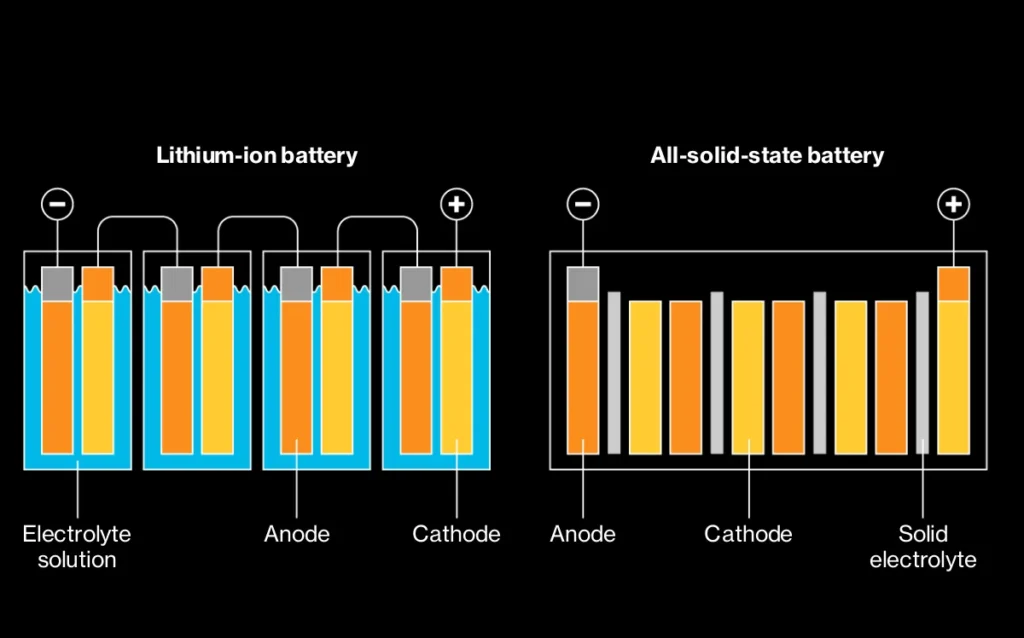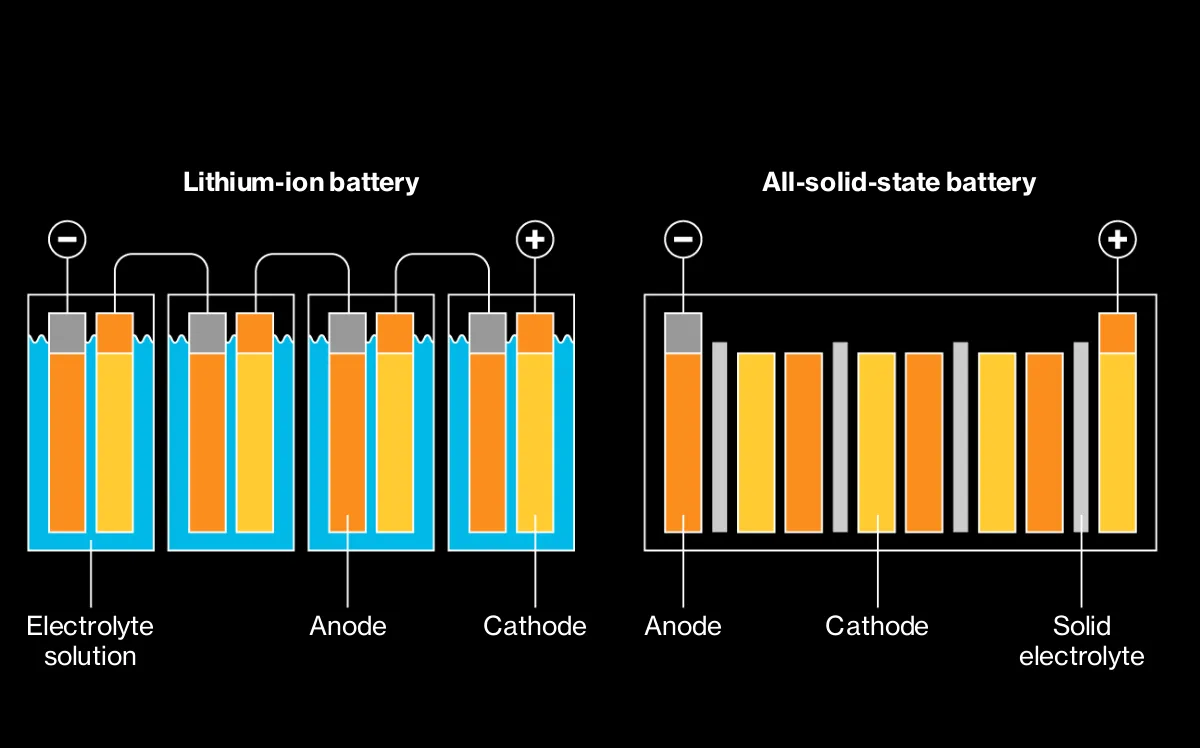
The Nissan GT-R is one of the most iconic sports cars on the market, and it’s about to get even more exciting. Signals from Nissan are confirming our suspicion that the next-generation GT-R will be powered by solid-state batteries. This is a major development, as solid-state batteries offer several advantages over traditional lithium-ion batteries. Solid-state batteries can store more energy in the same volume, which means that the next-generation GT-R will have a longer range and better performance.
Advantages of Solid-State Batteries
Solid-state batteries are a new breed in the world of energy storage. These batteries use a solid electrolyte instead of a liquid electrolyte, making them safer and more energy-dense than traditional lithium-ion batteries. A solid electrolyte is a material that can conduct ions but not electrons, ensuring safety and efficiency.
The Mechanism Behind Solid-State Batteries
Solid-state batteries operate similarly to lithium-ion batteries but use a solid electrolyte instead of a liquid one. This change eliminates the risk of short circuits and volatile reactions. During discharge, lithium ions move through the solid electrolyte from the cathode to the anode, creating an electric current. This current powers devices, such as electric vehicles and consumer electronics.
The Pros of Solid-State Batteries
Solid-state batteries offer several advantages over lithium-ion batteries:
- Higher Energy Density: Solid-state batteries can store more energy per unit weight and volume, leading to extended electric vehicle range and reduced battery space requirements.
- Faster Charging Times: Charging solid-state batteries is significantly quicker due to the rapid movement of ions, taking only 15 minutes to reach 80% charge.
- Enhanced Safety: Solid-state batteries are safer, as they lack flammable liquids and are less prone to overheating.
- Wider Operating Temperature Range: They can operate in extreme conditions, such as hot deserts or cold winters.
- Longer Lifespan: Solid-state batteries last longer with minimal capacity loss over time.
Additional Benefits
Solid-state batteries could also lead to improvements in electric vehicles, such as reduced weight, better handling, improved cooling, and reduced noise, making driving an electric vehicle more enjoyable.
Challenges and Solutions
While solid-state batteries offer numerous advantages, they also come with challenges, including higher production costs and performance issues at low temperatures. Researchers are actively working on addressing these challenges.
The Manufacturing Challenge
The production process for solid-state batteries is more complex and costly than that of lithium-ion batteries. However, as the technology matures and economies of scale are achieved, the cost is expected to decrease.
Performance at Low Temperatures
In cold weather, the conductivity of the solid electrolyte decreases, impacting battery performance. Researchers are exploring various approaches to improve solid-state battery performance in low-temperature conditions, including the development of new electrolyte materials and the use of composite electrolytes.
Safety Concerns
Despite being safer than lithium-ion batteries, solid-state batteries can overheat if not properly cooled. Researchers are developing cooling systems and safety features to mitigate this risk. They are also working on preventing dendrite formation, which can cause short circuits and fires.
Interfacial Resistance
Interfacial resistance can reduce the performance and efficiency of solid-state batteries. Researchers are developing new materials and processes to reduce this resistance.
The Future of the Nissan GT-R
The adoption of solid-state batteries in the next-generation Nissan GT-R is a game-changer. It will have a longer range, faster charging times, and improved safety. This will make it even more appealing to performance car enthusiasts and everyday drivers alike.
Conclusion
The evolution of solid-state batteries marks a significant step forward in electric vehicle technology. With ongoing research and development, solid-state batteries are on the verge of becoming commercially viable. The combination of solid-state batteries and the Nissan GT-R promises an exciting future for sports car enthusiasts.
